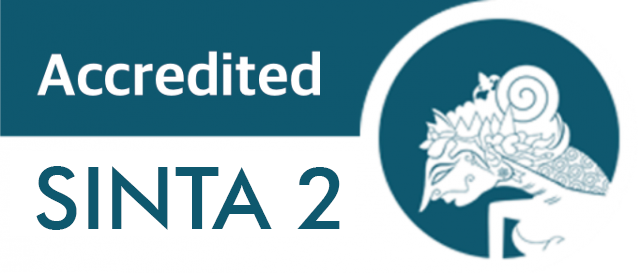Learning Design for Combinatorics with Realistic Mathematics Education (RME) Approach
DOI:
https://doi.org/10.18326/hipotenusa.v5i2.290Keywords:
leaning design, RME approach, design researchAbstract
The purpose of this research is to design learning combinatorics sub-material faktorial, permutation, combination and chance with RME approach. This research is a qualitative research. With this research method using design research. The research techniques used are measurement techniques, direct observation and documentation with tools in the form of objective tests, observation sheets and document sheets. The research subjects were 2 classes, namely A1 and A2 classes in the Mathematical Statistics course, especially combinatorics material totaling 35 students with the learning trajectory in the form of numbers that were applied alternately to students. The conclusion of this research is obtained: 1) in the faktorial sub-material, students are introduced to the RME approach that 4!=24, 3!=6, 2!=2, 1!=1until it is proven that 1!=1; 2) in the permutation and combination sub-material, students are directed to be examples of the same numbers and letters that form the rules of permutation and combination; 3) in the opportunity sub-material, students are exemplified about coins and dice, both in one, two, and three pieces in the context of the problem.
References
Afifah, N., & Dachi, S. W. (2022). Combinatorial Study Implementation In Kaggle Applications. AioCSIT Journal, 3(2), 68–74.
Ahmad, M., & Asmaidah, S. (2018). Pengembangan Perangkat Pembelajaran Matematika Realistik Untuk Membelajarkan Kemampuan Pemecahan Masalah Matematika Siswa Smp. Mosharafa: Jurnal Pendidikan Matematika, 6(3), 373–384. https://doi.org/10.31980/mosharafa.v6i3.326
Aleslami, I. R., Minarni, A., & Fauzi, K. M. A. (2021). Development of Mathematics Teaching Materials Based on the Realistic Mathematics Approach (PMR) to Improve the Mathematical Reasoning and Representation Ability of Class VII Students of SMP Muhammadiyah 47 Medan Sunggal. Budapest International Research and Critics in Linguistics and Education (BirLE) Journal, 4(1), 252–264. https://doi.org/10.33258/birle.v4i1.1582
Bray, A., & Tangney, B. (2016). Enhancing student engagement through the affordances of mobile technology: a 21st century learning perspective on Realistic Mathematics Education. Mathematics Education Research Journal, 28(1), 173–197. https://doi.org/10.1007/s13394-015-0158-7
Durand-Guerrier, V., Boero, P., Douek, N., Epp, S. S., & Tanguay, D. (2012). Examining the Role of Logic in Teaching Proof. In New ICMI Study Series (Vol. 15). https://doi.org/10.1007/978-94-007-2129-6_16
Fitri, P. R., Sukirwan, S., & Jaenudin, J. (2022). Penerapan Pendekatan Realistik Mathematics Education Untuk Meningkatkan Hasil Belajar Siswa Materi Himpunan Menggunakan Video Permainan 17an. Wilangan: Jurnal Inovasi Dan Riset Pendidikan Matematika, 3(3), 188. https://doi.org/10.56704/jirpm.v3i3.13295
Fredriksen, H. (2020). Correction to: Exploring Realistic Mathematics Education in a Flipped Classroom Context at the Tertiary Level (International Journal of Science and Mathematics Education, (2020), 10.1007/s10763-020-10053-1). International Journal of Science and Mathematics Education, 1, 10763. https://doi.org/10.1007/s10763-020-10065-x
Hamid, A., & Haka, N. B. (2021). Reduction of Students’ Biological Misconceptions through the Conceptual Change Model Integrated with Android-Based Quran. Tadris: Jurnal Keguruan Dan Ilmu Tarbiyah, 6(1), 87–101. https://doi.org/10.24042/tadris.v6i1.7431
Irawan, D., Mursito, B., & Purnomo, I. A. D. (2021). The Effectiveness of Education, Skills, Atitude, and Comunication on Job Promotions at Lorin Solo Hotel. International Journal of Economics, Bussines, and Accounting Reserach (IJEBAR), 5(4), 471–478. https://doi.org/10.29040/ijebar.v5i4.4052
Kusumawardani, W., Ramli, M., & Muzzazinah. (2020). Jurnal bioedukatika. Jurnal Bioedukatika, 8(2), 79–90.
Lange, J. de. (2006). Mathematical Literacy for Living From Oecd-Pisa Perspective. Sukuba Journal of Educational Study in Mathematics, 25, 13–25. https://www.criced.tsukuba.ac.jp/math/sympo_2006/lange.pdf
Manurung, M. M., Windria, H., & Arifin, S. (2019). Desain Pembelajaran Materi Himpunan Dengan Pendekatan Realistic Mathematics Education (RME) Untuk Kelas VII. Jurnal Derivat: Jurnal Matematika Dan Pendidikan Matematika, 5(1), 19–29. https://doi.org/10.31316/j.derivat.v5i1.143
Nar Herrhyanto dan Tuti Gantini. (2009). Pengantar Statistika Matematika Cetakan 1 ISBN 978-979-543-762-8. Penerbit: CV. Yrama Widya.
Novianawati, N., & Nahadi. (2015). Analysis of students’ decision making to solve science reasoning test of trends in international mathematics and science study (Timss). Jurnal Pendidikan IPA Indonesia, 4(1), 1–6. https://doi.org/10.15294/jpii.v4i1.3491
Prastyo, H. (2020). Kemampuan Matematika Siswa Indonesia Berdasarkan TIMSS. Jurnal Padegogik, 3(2), 111–117. https://doi.org/10.35974/jpd.v3i2.2367
Rahmawati, & Mahdiansyah. (2014). Literasi Matematika Siswa Pendidikan Menengah : Analisis Menggunakan Desain Tes Internasional dengan Konteks IndonesiaRahmawati, and Mahdiansyah. “Literasi Matematika Siswa Pendidikan Menengah : Analisis Menggunakan Desain Tes Internasional Dengan Konteks. Jurnal Pendidikan Dan Kebudayaan, 20, 452–469.
Ulfah, M. S., & Rejeki, S. (2022). Desain Lembar Kerja Peserta Didik Materi Himpunan Berbasis Realistic Mathematics Education untuk Mendukung Pembelajaran Daring di Era Pandemi COVID-19. Jurnal Riset Pendidikan Dan Inovasi Pembelajaran Matematika (JRPIPM), 6(1), 32–47. https://doi.org/10.26740/jrpipm.v6n1.p32-47
Uripno, G., & Rosyidi, A. H. (2019). Students’ Combinatorial Thinking Processes in Solving Mathematics Problem. Jurnal Riset Pendidikan Dan Inovasi Pembelajaran Matematika (JRPIPM), 2(2), 80. https://doi.org/10.26740/jrpipm.v2n2.p80-92
Wahyudi. (2016). The Development of Realistic Mathematics Education (RME) Model for the Improvement of Mathematics Learnings of Primary Teacher Education Program (PGSD) Students of Teacher Training and Education Faculty (FKIP) of Sebelas Maret University in Kebumen. Proceeding The 2nd International Conference On Teacher Training and Education Sebelas Maret University, 2(1), 369–381.
Wijers, M., & de Haan, D. (2020). Mathematics in Teams—Developing Thinking Skills in Mathematics Education. https://doi.org/10.1007/978-3-030-33824-4_2
Wittmann, E. C. (2020). The Impact of Hans Freudenthal and the Freudenthal Institute on the Project Mathe 2000. https://doi.org/10.1007/978-3-030-20223-1_4
Downloads
Published
How to Cite
Issue
Section
License
Copyright (c) 2023 Dona Fitriawan, Nurfadilah Siregar, Endar Sulistyowati

This work is licensed under a Creative Commons Attribution-NonCommercial-ShareAlike 4.0 International License.

This work is licensed under a Creative Commons Attribution-ShareAlike 4.0 International License.






